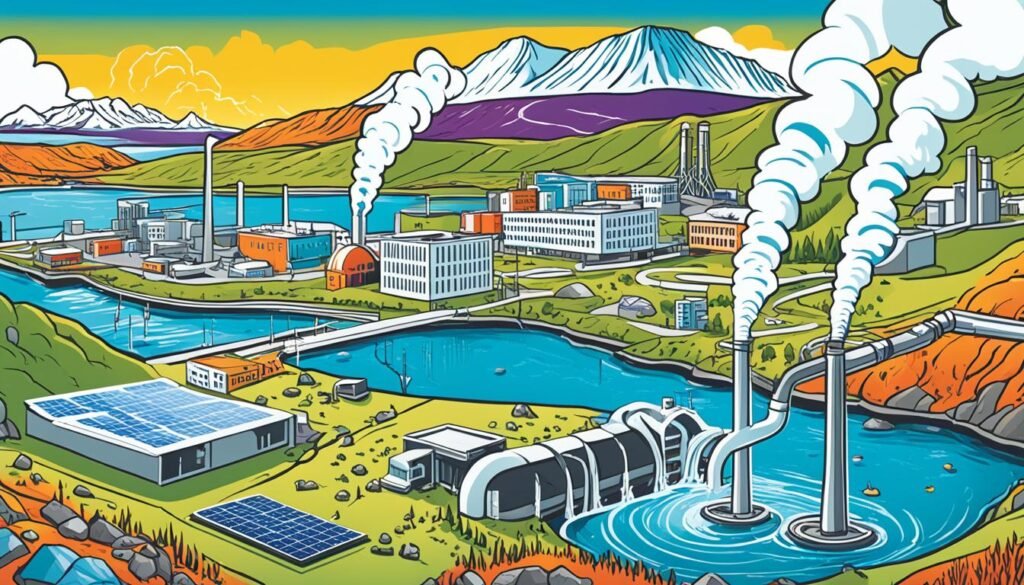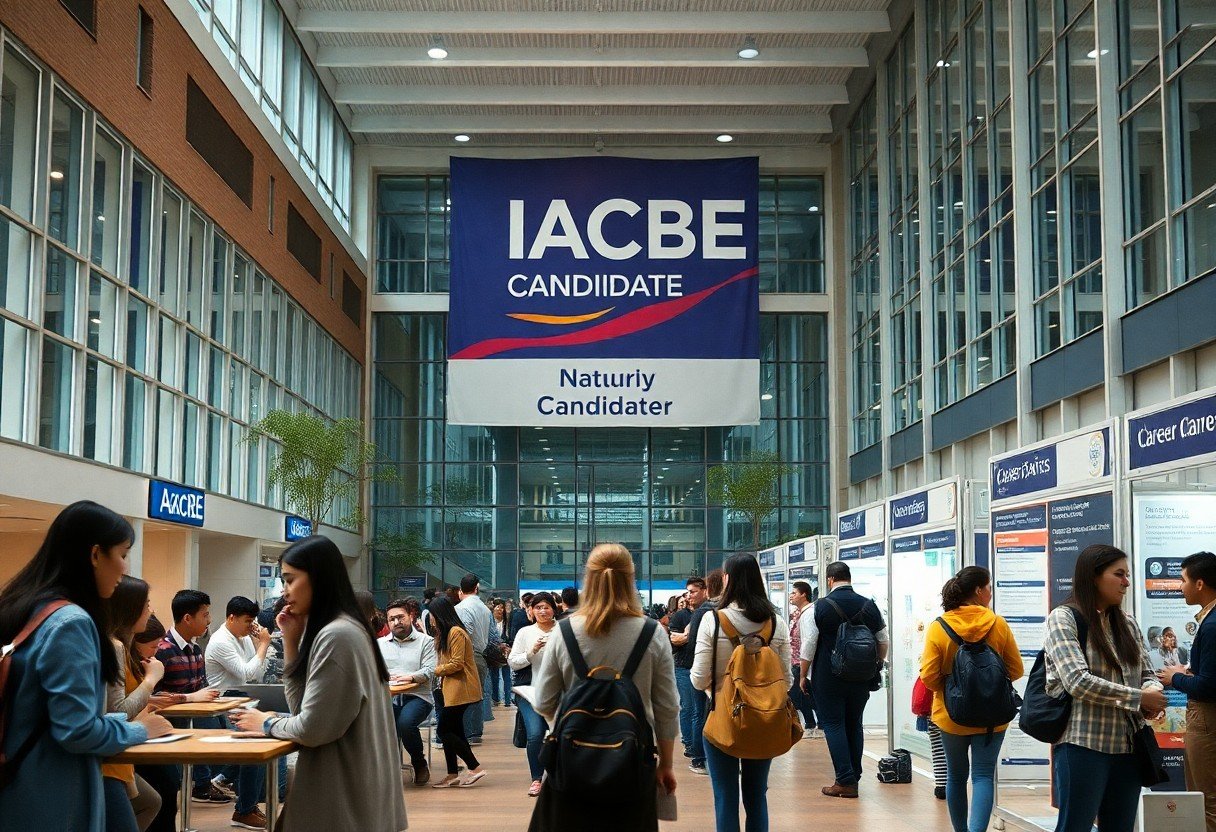Imagine a world where the untapped power of the Earth’s core fuels our sustainable future. This is the reality in Reykjavik, Iceland, where the geothermal energy master’s program at Reykjavik University is revolutionizing the way we approach renewable energy solutions. With over 25% of Iceland’s primary energy supply derived from geothermal sources, this island nation is a living laboratory for the future of clean, efficient power.
Key Takeaways
- Explore the power of geothermal energy in a volcanic landscape
- Gain an interdisciplinary education in sustainable energy solutions
- Prepare for a career at the forefront of renewable energy technology
- Collaborate with global leaders in the geothermal and energy industries
- Experience the unique natural and cultural wonders of Iceland
Harnessing the Power of Geothermal Energy
Iceland’s volcanic landscape is a testament to the incredible geothermal potential waiting to be harnessed. The country’s geothermal resources have long been a source of clean, renewable energy, and the Geothermal Energy Master’s program at Reykjavik University delves deep into the science and technology behind this sustainable power source.
Exploring Iceland’s Renewable Energy Potential
Students in the program will explore the geological wonders of Iceland, studying the country’s extensive volcanic activity and how it can be leveraged for geothermal heating and electricity generation. They’ll examine the cutting-edge techniques and technologies used to tap into this renewable energy, from drilling and extraction to distribution and utilization.
The Role of Geothermal Energy in a Sustainable Future
Beyond the technical aspects, the program also explores the broader role of geothermal energy in addressing the global challenges of climate change and energy security. As the world transitions towards a more sustainable future, geothermal energy stands out as a clean, efficient, and reliable solution that can play a vital part in the energy mix. Students will delve into the environmental and economic benefits of geothermal energy, as well as its potential to support a more sustainable and energy-efficient society.
Reykjavik University’s Sustainable Energy Science Program
Reykjavik University’s Sustainable Energy Science program takes an innovative, interdisciplinary approach to addressing the global energy challenges of our time. By blending technology, business, and policy, the program equips students with a comprehensive understanding of sustainable energy solutions.
Interdisciplinary Approach to Sustainable Energy
The program’s interdisciplinary curriculum encourages students to explore the intersections between sustainable energy, energy economics, and geothermal energy. This holistic perspective enables them to develop a deep understanding of the complex and interconnected nature of the energy landscape.
Pathways to Specialization: Economics, Geothermal, and Energy Science
Within the Sustainable Energy Science program, students can choose from three distinct pathways: Economics and Policy, Geothermal, and Energy Science. This allows them to specialize in their areas of interest while maintaining a broad understanding of the field. Whether students are passionate about energy economics, harnessing the power of geothermal energy, or exploring the latest advancements in energy science, the program offers a tailored approach to their educational journey.

Iceland: Geothermal energy master’s Reykjavik Iceland
Nestled in the heart of the volcanic landscape of Iceland, the country’s capital city, Reykjavik, offers an unparalleled opportunity to immerse oneself in the world of geothermal energy. This master’s program in Geothermal Energy taps into the nation’s abundant renewable resources, harnessing the power of sustainable power generated from the earth’s internal heat.
Iceland’s unique geological features, shaped by ongoing volcanic activity, provide an ideal setting for students to explore the practical applications of geothermal heating and clean energy solutions. From studying the intricate process of geothermal exploration to understanding the environmental conservation efforts, this program equips aspiring energy professionals with the knowledge and skills to address the global challenges of energy efficiency and sustainability.
By delving into the nuances of geothermal energy, students gain a comprehensive understanding of the role it plays in shaping Iceland’s energy landscape and its potential to contribute to a more sustainable future worldwide. The program’s focus on hands-on learning and real-world case studies ensures that graduates are well-prepared to tackle the complexities of the energy industry and drive forward innovative solutions for a greener tomorrow.
Industry Collaboration and Real-World Insights
The Sustainable Energy Science program at Reykjavik University has forged strong partnerships with global leaders in renewable energy, including Reykjavik Energy and Iceland Geosurvey. These industry collaborations provide students with unparalleled access to real-world insights and cutting-edge research, ensuring a comprehensive and practical understanding of the sustainable energy landscape.
Partnerships with Global Leaders in Renewable Energy
Through these global partnerships, students gain hands-on experience working alongside industry experts, delving into the latest advancements in renewable energy technologies. From geothermal exploration to energy policy development, the program’s industry collaborations offer a unique opportunity to apply classroom knowledge in a professional setting, preparing graduates for successful careers in the dynamic field of sustainable energy.

By fostering these industry connections, the Sustainable Energy Science program at Reykjavik University equips students with the skills, knowledge, and real-world insights needed to drive innovation and lead the transition to a sustainable energy future. The program’s emphasis on industry collaboration and practical experience sets it apart, ensuring graduates are well-positioned to make a meaningful impact in the rapidly evolving renewable energy industry.
Diverse Student Community and Expert Faculty
The Sustainable Energy Science program at Reykjavik University attracts a diverse cohort of students from various academic backgrounds, including business, engineering, economics, geology, and geography. This rich interdisciplinary environment is further enhanced by the expert faculty, a blend of seasoned academics and industry professionals, who bring a wealth of knowledge and real-world insights to the classroom.
Students in the diverse student community collaborate on cross-disciplinary projects, fostering a dynamic exchange of ideas and innovative solutions to the complex challenges facing the renewable energy industry. The program’s expert faculty are not only renowned researchers but also experienced practitioners who have worked extensively in the field of geothermal and sustainable energy development.
This unique combination of a diverse student community and expert faculty creates an inspiring and supportive learning environment, where students can explore the full breadth of sustainable energy solutions and develop the skills and knowledge needed to drive the transition to a more sustainable future.
Addressing Global Energy Challenges
The Sustainable Energy Science program at Reykjavik University is designed to equip students with the knowledge and skills necessary to tackle the pressing global energy challenges of our time, including the critical issue of climate change. By fostering an interdisciplinary approach that combines technology, economics, and policy-making, the program empowers students to develop innovative solutions that can transform the energy landscape towards a more sustainable and resilient future.
Climate Change and Sustainable Energy Solutions
Students in the Sustainable Energy Science program will gain a comprehensive understanding of the complex interplay between energy systems, environmental impacts, and climate change. They will explore cutting-edge sustainable energy technologies, analyze the economic and policy frameworks that shape the energy sector, and devise strategies to mitigate the effects of climate change through the implementation of renewable and efficient energy solutions.

By fostering a deep understanding of global energy challenges and the pivotal role of sustainable energy in addressing climate change, the program equips graduates with the expertise to become leaders in the transition towards a more sustainable energy future. With a focus on practical applications and real-world problem-solving, students will be well-prepared to drive change and contribute to the development of innovative, climate-friendly energy systems.
Program Duration and Format
The Sustainable Energy Science program at Reykjavik University offers a comprehensive and immersive learning experience. This full-time, on-campus program spans 24 months and provides students with 120 ECTS credits, ensuring a well-rounded education in the field of sustainable energy science.
The program’s structure blends traditional classroom lectures, interactive seminars, and engaging field visits, allowing students to gain a deep understanding of the subject matter. This multifaceted approach equips them with the knowledge and practical skills necessary to tackle the challenges of the evolving energy landscape.
By leveraging Iceland’s rich geothermal resources and the expertise of industry leaders, the Sustainable Energy Science program at Reykjavik University offers a unique opportunity for aspiring professionals to develop expertise in this critical field. The program’s comprehensive curriculum, combined with hands-on experiences, prepares students to become leaders in the pursuit of sustainable energy solutions.
Core Courses and Electives
The Sustainable Energy Science program at Reykjavik University offers a well-rounded curriculum that balances core courses and electives. This approach allows students to tailor their educational journey and develop specialized expertise in the energy field.
Energy Field School
The Energy Field School provides students with hands-on experience in sustainable energy technologies. Through field trips and practical workshops, students gain valuable insights into the real-world application of renewable energy solutions, such as geothermal power and energy storage systems.
Energy Economics
The Energy Economics course explores the intricacies of energy markets and policies. Students delve into the economic factors that shape the energy landscape, including pricing, regulations, and the impact of renewable energy on traditional energy sources.
Environmental Impact Assessment
The Environmental Impact Assessment course equips students with the knowledge and skills to evaluate the environmental implications of energy projects. By understanding the potential environmental consequences, students can contribute to the development of sustainable energy solutions that minimize the ecological footprint.

Personalized Study Plans
The Sustainable Energy Science program at Reykjavik University recognizes the diverse needs and interests of its students. To ensure a personalized learning experience, the program offers customizable study plans that cater to different specializations, such as Energy Policy and Economics, Geothermal Energy, and Energy Science. These flexible schedules allow students to explore their areas of interest while maintaining a comprehensive understanding of the sustainable energy field.
Sample Schedules for Different Specializations
Whether you’re passionate about sustainable energy science, geothermal energy, or energy economics, the program provides sample schedules to help you plan your academic journey. These tailored schedules ensure you can delve deep into your chosen specialization while gaining a broader perspective on the sustainable energy landscape. The program’s flexibility empowers you to craft a personalized study plan that aligns with your career aspirations and academic interests.
By offering personalized study plans and sample schedules, the Sustainable Energy Science program at Reykjavik University enables students to pursue their passions while developing the necessary expertise to tackle the world’s pressing energy challenges. This approach helps students cultivate a well-rounded understanding of sustainable energy science and its various specializations.
Conclusion
The Geothermal Energy Master’s program in Reykjavik, Iceland, offers a unique opportunity to harness the power of sustainable energy in a volcanic landscape. Through Reykjavik University’s Sustainable Energy Science program, students gain an interdisciplinary education that empowers them to address global energy challenges and contribute to a more sustainable future.
By collaborating with industry leaders, engaging with a diverse student community, and following personalized study plans, participants in this program develop the knowledge and skills necessary to drive innovation in the field of renewable resources, sustainable power, and clean energy solutions. Leveraging Iceland’s abundant geothermal heating and volcanic activity, the program prepares the next generation of energy leaders to explore geothermal energy, enhance energy efficiency, and promote environmental conservation.
Whether students choose to specialize in economics, geothermal energy, or broader energy science, the Geothermal Energy Master’s program in Reykjavik, Iceland, provides a transformative educational experience that equips them to make a lasting impact on the global energy landscape and contribute to the transition towards a more sustainable, environmentally conscious future.
Source Links
- Renewable Energy | University of Iceland – https://english.hi.is/renewable_energy
- Iceland School of Energy – https://en.ru.is/ise/
- MSc Sustainable Energy – https://en.ru.is/ise/programmes/sustainable-energy/



